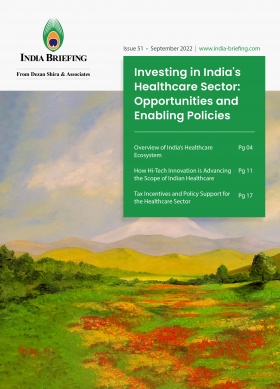India’s Public Holidays in 2023: List of Gazetted and Restricted Holidays
India’s public holidays in 2023 includes Gazetted and restricted days. Commercial establishments should note the schedule for the respective states where they are located.
As is the official practice, the public holiday schedule for 2023 in India is divided across three classifications: Gazetted, restricted, as well as state and union territory.
Many foreign human resource managers struggle with India’s holiday schedule. That is no surprise: the federal and state governments have acknowledged a number of holidays every month to accommodate over 1.3 billion people spread over 36 diverse states and union territories.
Although there are many ways to manage this schedule, most companies in India offer 10 to 14 public holidays depending upon the company’s past practices and industry norms, as well as the discretion of the concerned states.
Companies doing business with state and government authorities, however, must note their respective holiday calendars. For example, in 2023, government offices in the National Capital Territory of Delhi reportedly have 18 Gazetted holidays. In addition, there are 32 days for restricted holiday (days for optional holiday).
Overall, holidays in India are governed primarily through the following laws:
- The Weekly Holidays Act, 1942;
- The Industrial Employment (Standing Orders) Act, 1946;
- The National and Festival Holidays Act, 1963;
- The Negotiable Instruments Act 1981;
- The Companies Act 2013; and
- The Shops and Commercial Establishments Act.
However, among these – The National & Festival Holidays Act – is applicable to all establishments in the country, and mandates three holidays in India: Republic Day, January 26; Independence Day, August 15; and Gandhi Jayanti, October 2. Irrespective of the law that a company, industry, or organization follows, or whether they are public, private organizations, or multinational corporations, every entity in India must necessarily remain closed on these days. Organizations that need to work on those days need to take prior approval from concerned authorities.
Many businesses in India close offices on the Gazetted holidays and grant employees several optional holidays that they may select to observe a non-Gazetted holiday of their choosing. Other businesses simply mirror the holiday schedule observed by the management of their office building.
The below list of holidays are based on the Circular issued by the Ministry of Personnel, Public Grievances and Pensions.
Gazetted holidays in India for 2023
January
January 26, Thursday: Republic Day
March
March 8, Wednesday: Holi
March 30, Thursday: Ram Navami
April
April 4, Tuesday: Mahavir Jayanti
April 7, Friday: Good Friday
April 22, Saturday: Id-ul-Fitr
May
May 5, Friday: Buddha Purnima
June
June 29, Thursday: Id-ul-Zuha
July
July 29, Saturday: Muharram
August
August 15, Tuesday: Independence Day
August 19, Friday: Janmashtami
September
September 7, Thursday: Janmashtami (Vaishnava)
September 28, Thursday: Birthday of Prophet Mohammad (Milad-un-Nabi or Id-e-Milad)
October
October 2, Monday: Mahatma Gandhi’s Birthday (Gandhi Jayanti)
October 24, Tuesday: Dussehra
November
November 12, Sunday: Diwali
November 27, Monday: Guru Nanak’s Birthday
December
December 25, Monday: Christmas Day
Non-Gazetted / restricted holidays in India for 2023
January
January 1, Sunday: New Year’s Day
January 14, Saturday: Makar Sankranti
January 15, Sunday: Pongal
February
February 5, Sunday: Hazrat Ali’s Birthday, Guru Ravidas’s Birthday
February 15, Wednesday: Swami Dayananda Saraswati Jayanti
February 18, Saturday: Maha Shivaratri
February 19, Sunday: Shivaji Jayanti
March
March 7, Tueday: Holika Dahan, Dolyatra
March 22, Wednesday: Chaitra Sukladi/Gudi Padava/Ugadi/Cheti Chand
April
April 9, Sunday: Easter Sunday
April 14, Friday: Vaisakhi/Vishu/Meshadi
April 15, Saturday: Vaisakhadi (Bengal)/ Bahag Bihu (Assam)
April 21, Friday: Jamat-Ul-Vida
May
May 9, Tuesday: Guru Rabindranath’s Birthday
June
June 20, Tuesday: Rath Yatra
August
August 16, Wednesday: Parsi New Year’s Day (Nauraj)
August 20, Sunday: Vinayaka Chaturthi
August 29, Tuesday: Onam or Thiru Onam Day
August 30, Wednesday: Raksha Bandhan
September
September 6, Wednesday: Janmashtami (Smarta)
September 19, Tuesday: Ganesh Chaturthi
October
October 21, Saturday: Dussehra – Saptami
October 22, Sunday: Dussehra – Maha Ashtami
October 23, Monday: Dussehra – Maha Navmi
October 28, Saturday: Maharishi Valmiki’s Birthday
November
November 1, Wednesday: Karva Chouth
November 12, Sunday: Naraka Chaturdasi
November 13, Monday: Govardhan Puja
November 15, Wednesday: Bhai Dhuj
November 19, Sunday: Chhat Puja
November 24, Friday: Guru Teg Bahadur’s Martyrdom
December
December 24, Sunday: Christmas Eve
State and union territory holidays in India
The list of state and union territory holidays is quite large. Please click here – https://www.india.gov.in/state-and-ut-holiday-calendar – to review local holidays that apply to your place of business.
Concept of ‘dry days’
In addition to office closures, governments in the state and union territories often observe “dry days” or days when the sale of alcohol is not permitted on Gazetted, state, and union territory holidays. Dry days also routinely occur on local election dates.
During the course of the year, local governments may declare additional or fewer dry days at its discretion.
(For India’s Public Holidays in 2022, click here.)
About Us
India Briefing is produced by Dezan Shira & Associates. The firm assists foreign investors throughout Asia from offices across the world, including in Delhi and Mumbai. Readers may write to india@dezshira.com for more support on doing business in in India.
We also maintain offices or have alliance partners assisting foreign investors in Indonesia, Singapore, Vietnam, Philippines, Malaysia, Thailand, Italy, Germany, and the United States, in addition to practices in Bangladesh and Russia.
- Previous Article Maharashtra Revises Single-Use Plastic Ban: Items Now Allowed for Production and Use
- Next Article India-Netherlands Trade and Investment Ties









